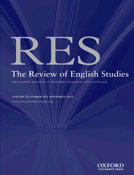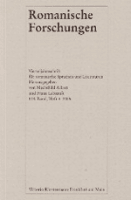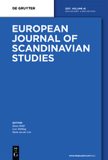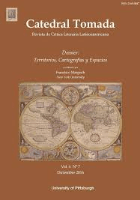
Vestnik Sankt-Peterburgskogo Universiteta-Yazyk i Literatura
Scope & Guideline
Illuminating the Intersections of Language and Literary Thought
Introduction
Aims and Scopes
- Linguistic Analysis:
The journal publishes research that delves into various aspects of linguistics, including phonetics, semantics, syntax, and discourse analysis, often utilizing corpus-based methodologies to explore language use. - Literary Studies:
A significant focus is placed on literary analysis, including the poetics and stylistics of Russian literature. This encompasses the study of historical texts and modern literature, examining themes, genres, and authorial techniques. - Cultural and Historical Contexts:
The journal explores the interplay between language, literature, and culture, highlighting historical contexts and their impact on literary production and interpretation. - Interdisciplinary Approaches:
Emphasizing an interdisciplinary methodology, the journal encourages contributions that bridge linguistics, literature, philosophy, and cultural studies, reflecting on how these fields inform one another. - Cognitive and Pragmatic Perspectives:
Research that incorporates cognitive and pragmatic approaches to understanding language and literature is prevalent, analyzing how meaning is constructed and interpreted in various communicative contexts.
Trending and Emerging
- Digital Communication and Linguistics:
Research exploring the impact of digital communication, particularly in the context of social media and online discourse, has gained traction, reflecting the growing importance of technology in shaping language and communication practices. - Cognitive Linguistics and Pragmatics:
There is an increasing emphasis on cognitive and pragmatic approaches to language, which examine how individuals process and interpret language in context, revealing insights into meaning-making and communication strategies. - Interdisciplinary Cultural Studies:
The journal has embraced interdisciplinary studies that combine literature, cultural analysis, and historical context, reflecting a broader trend in academia towards integrating diverse fields to enrich understanding of texts and their cultural implications. - Literary and Linguistic Creativity:
A growing interest in linguistic creativity, especially in the context of modern prose and poetic forms, highlights innovative uses of language and challenges traditional literary conventions. - Gender and Language Studies:
There is a noticeable increase in research focusing on gender dynamics within language use and literary representation, addressing contemporary societal issues and the evolution of gendered language.
Declining or Waning
- Traditional Historical Linguistics:
There seems to be a waning interest in traditional historical linguistic studies, particularly those focused solely on the etymology or historical development of specific words or phrases, as the journal increasingly gravitates towards more contemporary applications of linguistic theory. - Purely Descriptive Literary Criticism:
The journal has moved away from purely descriptive forms of literary criticism that do not engage with broader theoretical frameworks or interdisciplinary methods. This trend suggests a shift towards more analytical and contextualized approaches. - Narrowly Focused Case Studies:
Case studies that do not connect to wider linguistic or cultural phenomena are appearing less frequently, indicating a preference for research that situates individual texts within broader socio-cultural or historical narratives.
Similar Journals

Moenia-Revista Lucense de Linguistica & Literatura
Fostering Innovative Research in Linguistic and Literary StudiesMoenia-Revista Lucense de Linguistica & Literatura, published by the esteemed Universidad de Santiago de Compostela, is a crucial academic journal dedicated to the fields of linguistics and literary studies. With its ISSN 1137-2346 and E-ISSN 2340-003X, this journal aims to advance scholarly discourse and provide a platform for innovative research in both linguistics and literature, with a particular focus on linguistic theories, literary analysis, and interdisciplinary approaches. The journal is categorized in the lower quartile (Q4) in its respective fields according to the latest metrics, including Scopus rankings, which place it within the challenges of the arts and humanities. Although currently not open access, it serves as an accessible resource for researchers and enthusiasts alike who are keen to explore diverse methodologies and theoretical frameworks. With its commitment to fostering rigorous academic inquiry, Moenia stands as a vital resource for those looking to deepen their understanding of the intricate relationships between language and literature.

BULLETIN HISPANIQUE
Charting New Territories in Hispanic StudiesBULLETIN HISPANIQUE, published by PRESSES UNIV BORDEAUX, is a prominent academic journal dedicated to the interdisciplinary exploration of literature, linguistic studies, and historical analysis related to the Spanish-speaking world. Since its inception in 1972, the journal has established itself as a vital resource for researchers and scholars, achieving notable recognition across various categories—most recently characterized as Q2 in History, Q3 in Linguistics and Language, and Q1 in Literature and Literary Theory for the year 2023. Though it operates under traditional access models, BULLETIN HISPANIQUE maintains a commitment to scholarly excellence, offering insightful articles that contribute to the rich tapestry of cultural and linguistic discourse. With its Scopus rankings reflecting significant academic engagement, the journal serves as an essential platform for dialogue and discovery in the arts and humanities, appealing to a diverse audience of students, professionals, and academics committed to advancing knowledge in these vital fields.

REVIEW OF ENGLISH STUDIES
Illuminating the Landscape of Literary TheoryREVIEW OF ENGLISH STUDIES, published by Oxford University Press, is a prestigious journal that has been advancing the fields of Literature and Literary Theory as well as Linguistics and Language since its inception in 1925. With an impressive impact factor and a commendable ranking, placing it in the Q1 and Q2 categories across relevant disciplines, the journal serves as a vital platform for researchers, scholars, and students alike. Covering a wide range of topics from classical literature to contemporary linguistic analysis, REVIEW OF ENGLISH STUDIES is committed to fostering scholarly discourse and promoting innovative research methodologies. Although it does not offer open access, the journal is highly regarded for its rigorous peer-review process and high-quality publications, making it an essential resource for anyone engaged in English studies. For researchers seeking to keep abreast of the latest developments in the field, this journal stands as an indispensable guide and repository of knowledge.

Sibirskii Filologicheskii Zhurnal
Navigating the Rich Tapestry of Literature and LinguisticsSibirskii Filologicheskii Zhurnal is a prestigious academic journal published by the Russian Academy of Sciences, Institute of Cytology and Genetics. With ISSN 1813-7083, it is dedicated to advancing research in the fields of Cultural Studies, Linguistics and Language, and Literature and Literary Theory, and has achieved notable rankings, including Q2 in Cultural Studies and Linguistics, and Q1 in Literature for 2023. The journal provides a platform for scholarly discourse, contributing valuable insights to its fields with an evolving scope that spans from 2018 to 2024. Though not an open-access journal, Sibirskii Filologicheskii Zhurnal serves as a vital resource for researchers, professionals, and students in the Russian Federation and beyond, fostering a deeper understanding of linguistic and literary phenomena. Its commitment to high-quality content makes it an essential addition to any academic's library.

ROMANISCHE FORSCHUNGEN
Fostering Scholarly Dialogue in Literary StudiesROMANISCHE FORSCHUNGEN, published by VITTORIO KLOSTERMANN GMBH, stands as a key scholarly journal in the fields of linguistics and literary studies, focusing particularly on Romance languages and literature. With an ISSN of 0035-8126 and an E-ISSN of 1864-0737, this journal is vital for researchers and scholars seeking to explore and advance their understanding of the nuances within Romance language studies. Operating from its base in Frankfurt am Main, Germany, ROMANISCHE FORSCHUNGEN features a robust publication history from 2002 to 2024. While currently categorized in Q4 within both Linguistics and Language and Literature and Literary Theory for 2023, the journal aims to cultivate a scholarly dialogue that bridges these disciplines, fostering an environment for innovative and critical inquiry. Although not an open-access journal, it serves as a crucial resource for professionals and students dedicated to Romance philology and comparative literature.

Archivum
Unlocking Knowledge in Language and Literary TheoryArchivum, published by UNIV OVIEDO in Spain, stands as a vital resource in the fields of Linguistics and Language as well as Literature and Literary Theory. With an impact factor reflective of its commitment to scholarly excellence, this journal has proudly maintained an Open Access model since 1951, ensuring that its rich repository of knowledge is freely available to researchers, professionals, and students alike. Covering a converged span from 2019 to 2023, Archivum has strategically positioned itself within the academic milieu, currently categorized in the Q4 for Linguistics and Language and Q3 for Literature and Literary Theory as of 2023. The journal is indexed in Scopus, with rankings that reflect its growing influence, such as #690 in Literature and Literary Theory and #887 in Language and Linguistics. Despite its challenges in visibility, Archivum remains essential for those seeking to engage with contemporary discussions and research within the humanities. Located in the heart of Asturias, it embodies the scholarly spirit of Spain, fostering a collaborative environment for innovation and inquiry in linguistic and literary studies.

Caplletra
Unveiling Insights into Language's IntricaciesCaplletra is a distinguished open-access journal dedicated to the field of linguistics and language studies, published by PUBL ABADIA MONTSERRAT since its inception. Based in Barcelona, Spain, this journal has been a vital resource for researchers, professionals, and students engaged in the intricate explorations of language and its applications since its transition to open access in 2005. Despite its current quartile ranking of Q4 within the Linguistics and Language category as of 2023, Caplletra continues to serve as an inclusive platform, fostering a dialogue that encourages a diverse range of scholarly contributions. Covering an expansive scope in the converged years from 2018 to 2024, it plays a crucial role in disseminating innovative research and insights. With its ISSN 0214-8188 and E-ISSN 2386-7159, Caplletra is committed to making academic work accessible to all, enhancing the landscape of linguistic scholarship and reflecting the evolving nature of language studies.

European Journal of Scandinavian Studies
Deepening understanding of the Scandinavian cultural landscape.European Journal of Scandinavian Studies is an esteemed journal published by Walter de Gruyter GmbH, dedicated to advancing scholarship in the fields of Cultural Studies, Linguistics and Language, and Literature and Literary Theory. Since its inception in 2010, the journal has been a pivotal platform for researchers and scholars, showcasing cutting-edge research and critical discussions pertaining to Scandinavian languages and cultures. With an ISSN of 2191-9399 and an E-ISSN of 2191-9402, the journal emphasizes accessibility to impactful academic work, despite its current non-open access model. While the journal is categorized within the Q4 quartile for Cultural Studies and Linguistics/Language, it has shown notable potential in ranking higher in its specialized domains, fostering a growing community of researchers invested in Scandinavian studies. The journal's office is located in Berlin, Germany, further enriching its European scholarly context. As it continues to evolve, the European Journal of Scandinavian Studies serves as a vital resource for academics seeking to engage deeply with the multifaceted aspects of Scandinavian culture and linguistics.

Listy Filologicke
Unveiling Insights in History, Language, and Literary Analysis.Listy Filologicke is a distinguished academic journal published by the Institute of Classical Studies at the Academy of Sciences of the Czech Republic, focusing on the interdisciplinary fields of History, Linguistics and Language, and Literature and Literary Theory. With an ISSN of 0024-4457 and an E-ISSN of 2570-9410, this journal has been a pivotal platform for scholarly discourse since its convergence years began in 2003. Notably, it holds a Q3 classification in History and Linguistics and Language, and a Q2 in Literature and Literary Theory as of 2023. Its rankings within Scopus illustrate its relevance and impact in academia, with noteworthy positions in the Arts and Humanities and Social Sciences categories. Researchers, professionals, and students will find Listy Filologicke an invaluable resource for exploring cutting-edge research, critical analyses, and discourse that contribute significantly to their respective fields. Based in the heart of the Czech Republic, it continues to promote scholarly excellence and foster international collaboration.

Catedral Tomada-Revista de Critica Literaria Latinoamericana-Journal of Latin American Literary Criticism
Cultivating Critical Insights in Literature and CultureCatedral Tomada - Revista de Crítica Literaria Latinoamericana is a pioneering journal dedicated to the exploration and critique of Latin American literature and its broader cultural implications. Published by the University of Pittsburgh's Library System, this Open Access journal has been instrumental since its launch in 2013 in making scholarly discussions accessible to a wider audience. With an ISSN of 2169-0847, the journal serves as a vital platform for researchers, professionals, and students interested in Literature and Literary Theory, Cultural Studies, and Linguistics and Language. Its esteemed ranking places it in Quartile 1 for Literature and Literary Theory and Quartile 2 for the other categories, underlining its commitment to high-quality academic discourse. Converging insights through a quarterly publication schedule from 2019 to 2024, Catedral Tomada aims to foster a rich dialogue on Latin American literary criticism, encouraging innovative perspectives and diverse voices within the field.